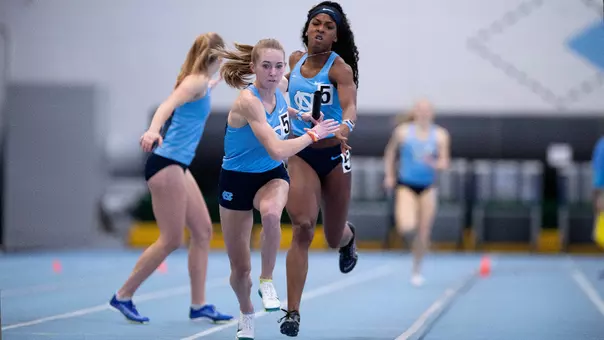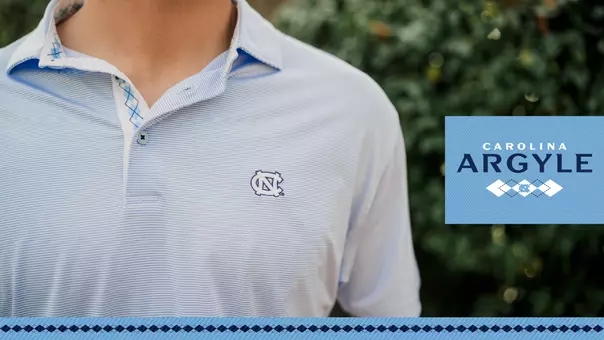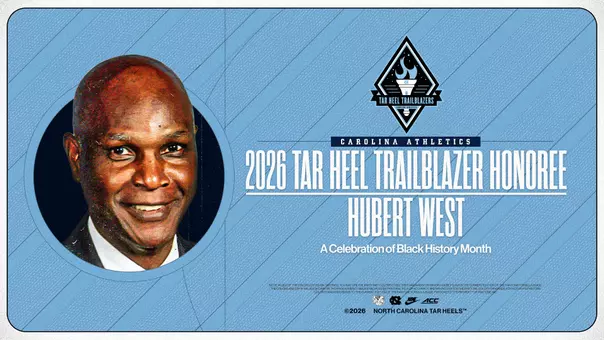University of North Carolina Athletics

Tar Heel Trailblazer: Sharon Couch
February 15, 2016 | General, Track & Field, Featured Writers, Turner Walston
Update, Feb. 2019:
In celebration of Black History Month, GoHeels.com will take a look back at each of the Tar Heel Trailblazers honored since 2014, with updates by Pat James.
After graduating from the University of Tennessee with a master's of science degree in sports psychology in May 2016, Sharon Couch served as an academic adviser in Tennessee's College of Education, Health and Human Sciences.
Then in January 2018, she became the coordinator of student life and diversity programs at Tennessee's Herbert College of Agriculture. Her responsibilities include collaborating with faculty and staff to enhance student life, academic performance and retention of minority Herbert students, while creating an inclusive, engaging and supportive environment for all students.
Couch also serves as the chair of Tennessee's Commission for Blacks, a body appointed by the chancellor to advise on planning, implementation and evaluation of university programs, policies and services as they relate to Black students, faculty and staff.
By Turner Walston
In 1991, Sharon Couch became the first African-American woman to win the Patterson Medal, Carolina's highest athletic honor. The next year, she became the first track athlete from UNC to compete at the Olympic Games, in Barcelona. Twenty-four years later, she has been named a Tar Heel Trailblazer.
"I was like, 'Wow!' That's really nice. It's really nice to be thought of," Couch says about her reaction to the recognition. "I just feel like it's icing on the cake. The Olympics were awesome enough, but it's just nice to be recognized by the place that you entrusted the most important part of your life to in terms of your development. I'm over the moon."
A native of Rice, Virginia, Couch ran for a small high school but was recruited nationwide. Former Tar Heel head coach Dennis Craddock liked what he saw. "There were a lot of questions as to whether I could compete at a big school," she says, "but he believed that I could do anything, and not just be a great athlete. He fed all those challenges for me."
Craddock set expectations high when Couch arrived on campus. He challenged her and roommate Kendra Mackey. "He told us, 'We are going to win every Atlantic Coast Conference championship that you are a part of. I know you're freshmen, but you have to understand that you have to perform. When you show up at the ACC, you're going to be the best in the ACC.' The expectation of who I was to be in that environment was set," Couch says. "I believe that's because he knew that I could rise, no matter where I had come from."
And rise she did. Couch led the Tar Heel program to seven straight league titles. Three times, she was the outstanding performer at the ACC Championships. She was a five-time All American and qualified for eight NCAA Championship meets. She led her fellow athletes, and not just on the track, but as a four-year team captain and member of the athletic council.
Couch credits both Craddock and former Tar Heel assistant Charles Foster, who had been an Olympian in 1976 and once was the world record holder in the high hurdles.. "They expected me to be at a high level as a freshman, but also developed me from one year to the next," she says of Craddock and Foster. "Their belief in me is really what buoyed me on a daily basis."
At Carolina, Foster helped Couch understand that she couldn't just waltz through practice, that she had to commit to every step. "He said, 'You know, Couch, if you can't beat these girls in practice, then what do you think you're going to do out in the world? You've got to apply yourself in a way that shows, even in practice, that you're the best,'" she remembered.
Foster's belief in her and his own Olympics experience gave Couch hope that she too could compete on the international stage. "It was automatic in my mind that there was always a next step for me," she says. "There wasn't a last day."
Indeed. At a meet during her senior year, Couch ran into Jackie Joyner-Kersee. "She said, 'You're going to have to choose whether you're going to long jump or whether you're going to hurdle for the Olympic Trials next year,'" Couch remembers. Here was another Olympian taking it as a matter of fact that Couch would compete on the world stage. "To everyone else around me, it was obvious that I should continue."
So she did. After graduating with a degree in speech communications, Couch continued to train with Craddock, commuting from Cary, where she lived with a team manager's family. Choosing to focus on the long jump, she qualified for Team USA in 1992.
"I didn't allow failure to stop me," she says. "I didn't allow injury. I didn't allow fear. That's the biggest thing, when you're coming from something small, something limited, especially based on race and being a female. I was willing to fail. I was willing to be the first. I was willing to be the only. I was willing to go into areas where most people couldn't even tell me what would be on the other side."
When she walked into the Olympic Stadium, she saw her club coach from Richmond, Virginia, and knew that walking beside her, figuratively, were hundreds of people that had helped her reach Barcelona. With the help of Couch's employer Kraft Foods, Craddock arranged for her mother and host mother to be there. "The Carolina Effect, the Craddock Effect so shaped all of my experiences," she says. "I was very, very blessed and lucky that North Carolina was where he was."
Couch finished sixth in the long jump in Barcelona, then threw herself into training as a professional athlete. Four years later, she and Joyner-Kersee battled atop the long jump rankings ahead of the 1996 Games in Atlanta. But at the Olympic Trials, she finished fourth and did not make the team. "It was awesome and devastating at the same time, but none of those things stopped the journey that I was on," she says.
For Couch, success is indeed the journey rather than the destination, as the old adage goes. "I am committed to being an athlete and all that entails," she says, "not just what the end is. What does it mean? What does my life look like?"
And so even as she missed the Olympics in her home country, Couch never stopped training. In 2000, she was back on the world stage, qualified and advanced to the semifinals of the 100-meter hurdles in Sydney.
In the years since she left Carolina, Couch has competed at the Olympics and on five world championship teams. She coached under J.J. Clark for four years at the University of Tennessee before moving into an academic coaching role while working on a master's degree in sports psychology. "My focus is on cultural sports psychology, which really looks at the underserved populations, the support mechanisms and really having a place for black females. What does that look like, and how do they go to the next level?" As part of her thesis, Couch is interviewing some of her former Olympic teammates.
Couch says her Carolina experience prepared her for life beyond the track. "I got to be a part of every single aspect of the University of North Carolina. Me, a little girl from a single mom in a two-bedroom trailer of a dirt road in Nowhere, Virginia. [Coach Craddock] found me there, and really brought me home. Once I came to Carolina, I fell in love, and it was my home. It continues to give back to me."
On Saturday, she and Phil Ford will be recognized as the Class of 2016 Tar Heel Trailblazers.
"I love that I'm getting to think about and celebrate the fact that I did have an impact and that my dream did come true," she says. "Not just dreams but the risks I took, and who I was as a person came through."




